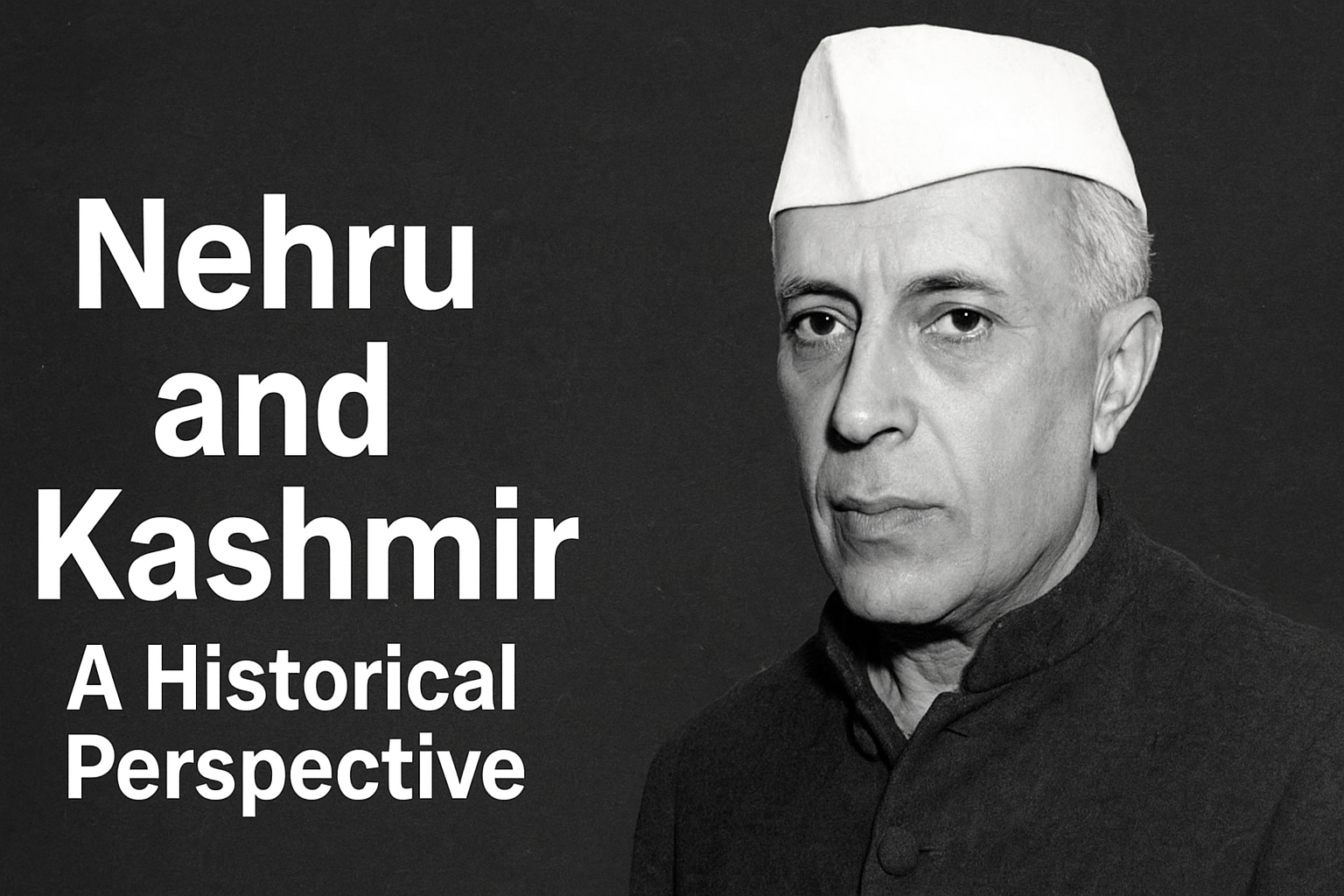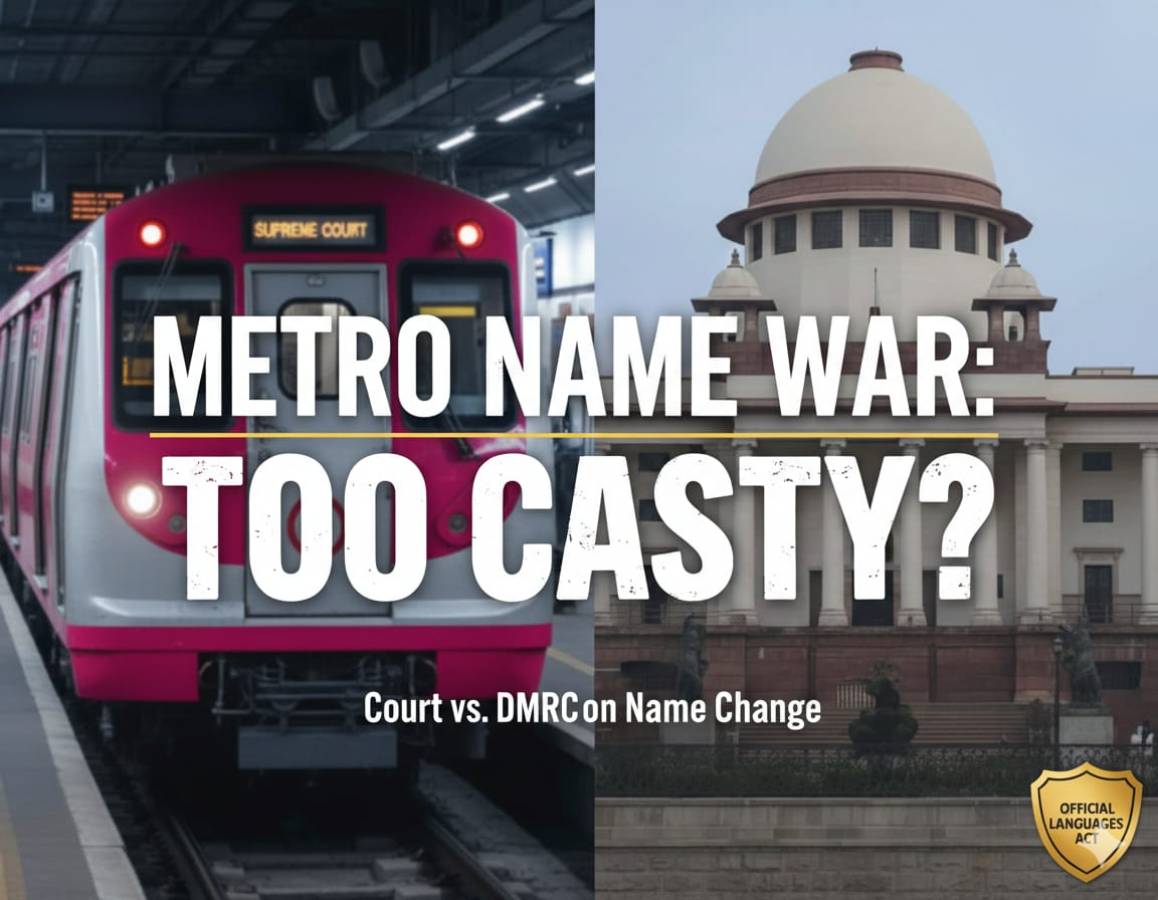
When we speak of modern India, we often think of its vibrant democracy, growing economy, and cultural diversity. Yet, the foundations of this modern nation were laid in the turbulent years around independence in 1947. Among the many challenges faced by the new leadership, the question of Jammu and Kashmir’s future was one of the most critical. Today, Kashmir is a state deeply woven into India’s identity, but its place in the Union was never guaranteed. The role of Jawaharlal Nehru in ensuring this outcome remains both central and contested.
To understand why Nehru’s presence was decisive, it is important to revisit the events of 1947. The British decision to partition India into two dominions, India and Pakistan, gave the princely states the choice to join either country or remain independent. Jammu and Kashmir was a princely state with a Hindu ruler, Maharaja Hari Singh, but a majority Muslim population. Geographically, it was located between the two new nations, making its position strategically significant for both.
At first, Maharaja Hari Singh wished to stay independent. He signed standstill agreements with both India and Pakistan to maintain existing arrangements while he decided. Pakistan accepted, but soon began pressuring the Maharaja. Armed tribesmen from Pakistan invaded Kashmir in October 1947, with the aim of forcing the state to join Pakistan. Faced with an immediate threat, the Maharaja sought military help from India.
This was where Nehru’s role became decisive. As Prime Minister, Nehru insisted that India could only send troops if Kashmir formally acceded to India. Maharaja Hari Singh signed the Instrument of Accession on October 26, 1947. The very next day, Indian troops were airlifted into Srinagar to defend the territory. Without this firm condition and swift action, Kashmir might have fallen to the invaders before India could intervene.
Nehru’s connection to Kashmir was also personal. He was born in Allahabad, but his family traced its roots to Kashmir. This cultural link made him emotionally invested in the state’s future. He was determined that Kashmir’s decision to join India should be based on the consent of its people, not merely on the ruler’s choice. This approach shaped his political strategy in the days following the accession.
After securing Kashmir militarily, Nehru took the matter to the United Nations in January 1948. He hoped that an international forum would support India’s position and condemn Pakistan’s aggression. The UN called for a ceasefire, which came into effect in January 1949, and proposed a plebiscite to decide Kashmir’s future after peace was restored. Although the plebiscite never took place due to Pakistan’s refusal to withdraw its forces from the occupied areas, Nehru’s decision ensured that the international community recognized India’s legal claim based on the Maharaja’s accession.
Critics have often argued that taking the issue to the UN was a mistake, as it internationalized the dispute. Yet, without Nehru’s move, India might have been seen as an aggressor rather than a defender of its territory. His choice allowed India to present itself as a nation committed to democratic principles and legal agreements.
Nehru also recognized the need to integrate Kashmir into the Indian Union in a way that respected its unique identity. Article 370 of the Indian Constitution, drafted under his leadership, gave the state special autonomy while it adjusted to being part of a diverse federal system. This was intended as a temporary arrangement, but it played a key role in reassuring Kashmiris in the early years that their culture and rights would be protected.
Furthermore, Nehru’s political partnership with Sheikh Abdullah, the popular leader of the National Conference, was crucial. Sheikh Abdullah supported the idea of Kashmir joining secular India rather than Muslim-majority Pakistan. Nehru’s trust in Abdullah allowed for a democratic government to be established in the state soon after accession. This alliance strengthened the legitimacy of Kashmir’s inclusion in India, as it showed that the decision had local political support.
If Nehru had not been Prime Minister at the time, it is uncertain whether another leader would have combined the same speed of action, personal commitment, and diplomatic vision. Sardar Vallabhbhai Patel, the Home Minister, played a vital role in integrating other princely states but initially saw Kashmir as outside his immediate concern. It was Nehru’s insistence and persistence that placed Kashmir at the top of the government’s priorities during the invasion.
In the decades that followed, the situation in Kashmir became more complex, with political unrest, separatist movements, and external interference. However, the legal and political foundation for Kashmir being part of India was laid in those critical months between October 1947 and early 1949. Nehru’s decisions during this time shaped the path that followed.
Historical analysis shows that without Nehru’s leadership, three risks were likely. First, the delay in military intervention could have allowed Pakistani forces to capture the entire state before India acted. Second, without his personal link to Kashmir and his alliance with Sheikh Abdullah, popular support for joining India might not have been secured. Third, without his diplomatic approach at the UN, India’s legal position could have been far weaker in international eyes.
It is also important to recognize that Nehru’s vision for Kashmir was tied to his broader idea of India. He saw the country as a secular, pluralistic nation where people of different religions could live together. For him, the inclusion of a Muslim-majority state like Kashmir was a powerful symbol of this vision. It was a statement to the world that India’s unity did not depend on religious uniformity, but on shared democratic values.
Today, decades later, the debate over Kashmir continues. The special status granted under Article 370 has been removed, and new political realities have emerged. Yet, the fact remains that the reason Kashmir became part of India in the first place was the sequence of events set in motion by Nehru’s actions in 1947.
History often invites speculation about “what if” scenarios. What if Nehru had delayed military action? What if he had left the decision entirely to Maharaja Hari Singh without political conditions? What if he had not engaged Sheikh Abdullah as a partner? Each of these possibilities points to the same conclusion: without Nehru’s combination of urgency, diplomacy, and political vision, Kashmir might well have taken a different path.
In the story of modern India, the integration of Kashmir stands as one of the most significant turning points. It was not just a territorial decision but a test of the values on which the nation was being built. Nehru’s role in that moment reminds us that leadership is often measured by the ability to act decisively under pressure while keeping sight of long-term principles.
Without Nehru, the map of India might have looked very different. More importantly, the idea of India as a secular democracy that embraces diversity could have faced its first and perhaps greatest defeat at the very moment of its birth. That is why the history of Kashmir’s accession cannot be told without acknowledging the central role of Jawaharlal Nehru.





















